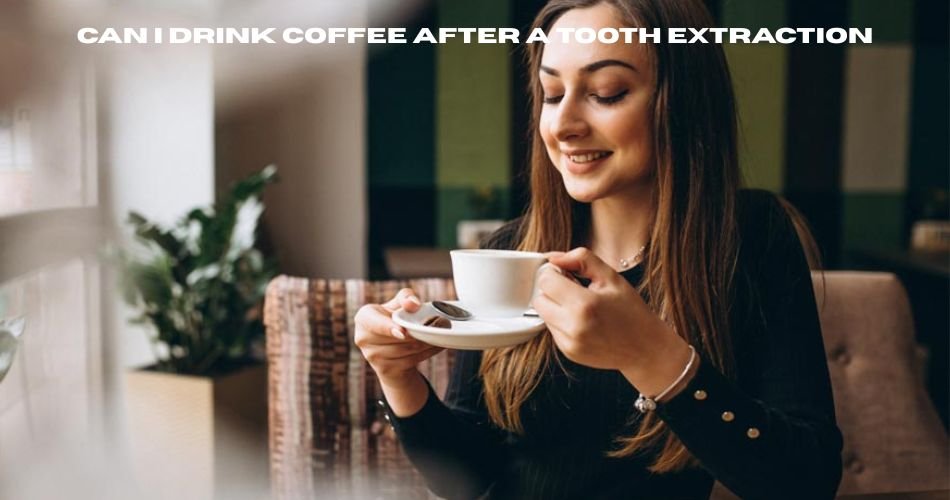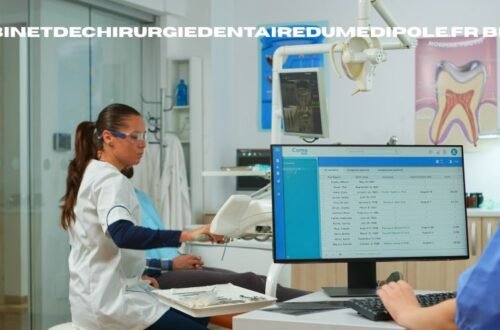Tooth extraction is one of those dental procedures that no one looks forward to, yet many people inevitably face at some point in their lives. Whether it’s due to decay, damage, infection, or impacted wisdom teeth, having a tooth pulled can be uncomfortable and often leaves people wondering about their daily habits—especially those who start their day with a comforting cup of coffee. If you’re asking Can I drink coffee after a tooth extraction, the answer isn’t as straightforward as you might hope. Coffee isn’t forbidden forever, but timing and method are everything. Understanding how coffee interacts with your healing gums and how to manage your cravings post-extraction is crucial to ensuring a smooth recovery.
The Tooth Extraction Process and Why Healing Matters So Much
When a tooth is removed, it leaves behind a small hole in your gum and bone, commonly called a socket. This area becomes extremely vulnerable immediately after the extraction. Your body reacts to this trauma by forming a blood clot over the socket to protect the exposed nerves and bone beneath. This clot is vital because it lays the foundation for tissue regeneration and prevents bacteria from entering the site. Disturbing this clot—through suction, heat, or vigorous activity—can lead to a condition called dry socket, which is intensely painful and greatly delays healing. So, while the extraction itself might be done in a day, the real battle is in the recovery period, which requires mindfulness and patience.
Why Coffee Is Not Recommended Immediately After an Extraction
For many of us, coffee is more than a beverage—it’s a daily ritual. However, right can i drink coffee after a tooth extraction, coffee becomes risky for several reasons. First, hot coffee can dissolve or disturb the fragile blood clot that forms in the socket. The heat increases blood flow and dilates vessels, which may trigger excessive bleeding and clot displacement. Secondly, coffee is acidic, and its chemical composition can irritate the wound, heightening discomfort and potentially increasing the risk of infection. Additionally, the caffeine in coffee acts as a stimulant, which can elevate your blood pressure and delay natural healing. Combining these elements makes coffee a poor choice in the initial 24 to 48 hours after your extraction.
The First 24 to 72 Hours: A Critical Window for Healing
The first one to three days following your tooth extraction are the most crucial. During this time, you need to avoid anything that could disturb the clot or irritate the wound. That includes smoking, alcohol, strenuous physical activity, and yes—hot drinks like coffee. Dentists typically advise sticking to soft foods and cool or lukewarm beverages only. Hydration is important, but that hydration must come from safe sources like water or electrolyte drinks. Even if you feel tempted to sip on cold coffee or an iced latte, you should avoid using straws, as the suction action alone is enough to dislodge the clot. Every small decision during this period contributes significantly to your overall recovery.
How Long Should You Wait Before Drinking Coffee Again?
So when is it safe to go back to your usual cup of coffee? In general, most dentists recommend waiting at least 48 hours, but 72 hours is even better to ensure the clot is stable and healing is well underway. Some patients may heal faster or slower depending on factors like age, overall health, or whether the extraction was surgical or simple. Surgical extractions, such as wisdom tooth removals, usually require a longer healing window. You should also listen to your body. If the swelling has gone down, pain has subsided, and there’s no visible bleeding, it’s a sign that you may slowly reintroduce coffee into your routine—but with caution.
The Difference Between Hot Coffee and Iced Coffee Post-Extraction
Many people think iced coffee is a safe shortcut around the waiting period, but even that comes with warnings. While cold beverages are less likely to dislodge the clot through heat, iced coffee is still acidic and often contains sugar or milk, which can irritate the healing area or promote bacterial growth. More importantly, drinking iced coffee with a straw is a huge no-no. Straws create suction in the mouth, which is one of the main causes of dry socket. If you’re going to try iced coffee after the 48-hour mark, make sure to sip slowly from a cup and monitor your mouth for any discomfort. The key is not the temperature alone—it’s how the beverage is consumed and how your body is responding.
What Happens If You Drink Coffee Too Soon After a Tooth Extraction?
If you jump the gun and drink coffee too soon, you risk developing complications like dry socket. This condition occurs when the clot becomes dislodged or dissolves prematurely, leaving your bone and nerves exposed. Dry socket is notoriously painful and often requires a follow-up dental appointment to clean the site and place a medicated dressing. You may also need pain medications and face a recovery time that’s significantly longer. In addition to physical pain, there’s also the risk of infection. Coffee’s acidic nature can disrupt the balance of your healing mouth, and when combined with bacteria, it creates the perfect storm for infection. So if you’re wondering whether one cup of coffee is worth it, the answer is a resounding no—at least not until your dentist gives you the green light.
Safe Alternatives to Coffee During the Healing Period
If you rely on coffee for a morning boost or mental clarity, giving it up temporarily might feel like a challenge. But there are safe alternatives you can try. Herbal teas like chamomile, rooibos, or peppermint are soothing and can be consumed lukewarm. Warm (not hot) broths are another good option—they provide hydration and a bit of nutrition without irritating your mouth. Smoothies made from soft fruits and vegetables (drunk with a spoon, not a straw) can give you a refreshing kick. Water, however, remains the gold standard. Drinking plenty of water keeps your body and mouth hydrated, speeds up healing, and helps flush out harmful bacteria naturally.
Tips for Reintroducing Coffee Safely After Tooth Extraction
Once the healing site has closed and your dentist approves it, you can start reintroducing coffee into your diet—but do it wisely. Start with a lukewarm brew and drink it slowly. Avoid overly acidic or highly caffeinated coffee during the first few days of reintroduction. Skip any sugar or syrups that could increase bacterial activity. Use a cup, not a straw, and rinse your mouth with water afterward to remove any coffee residue from the wound area. Pay attention to any unusual symptoms such as sharp pain, swelling, or bad taste in your mouth. If you notice any of these, stop drinking coffee immediately and contact your dentist.
What Dentists Say About Coffee After a Tooth Extraction
Most dental professionals agree that coffee should be avoided for at least 48 hours after an extraction, especially if it’s hot. They emphasize the importance of protecting the clot and keeping the area free of irritants. Dentists also caution against any drinks that are too sugary, caffeinated, or acidic. Your dentist may even advise a longer coffee-free period depending on how complex your extraction was. For example, wisdom tooth extractions often require a week of careful attention to diet and beverage choices. Following your dentist’s specific advice is always better than relying on general timelines because everyone’s healing process is a bit different.
Understanding the Role of Caffeine and Acidity in Recovery
Caffeine, the stimulant found in coffee, isn’t just an energy booster—it also has physiological effects that can slow healing. It can increase your heart rate and blood pressure, potentially triggering more bleeding or inflammation. Coffee’s acidity can lower the pH balance in your mouth, making it more hospitable to bacteria, especially when the gums are vulnerable. If your immune system is working hard to repair a wound, introducing coffee too soon may just make its job harder. So, waiting a few days isn’t about giving up your coffee addiction—it’s about allowing your body to heal as efficiently and painlessly as possible.
Conclusion
While it may be tough to skip your morning cup of coffee, especially when you’re already dealing with the stress and discomfort of a tooth extraction, it’s a small price to pay for a smooth recovery. Drinking coffee too soon after a tooth extraction can lead to severe complications like dry socket, prolonged bleeding, and delayed healing. The best approach is to follow your dentist’s advice, avoid hot and acidic beverages for at least 48 to 72 hours, and ease back into your coffee habit slowly and responsibly. Your mouth—and your future self—will thank you for the patience.






